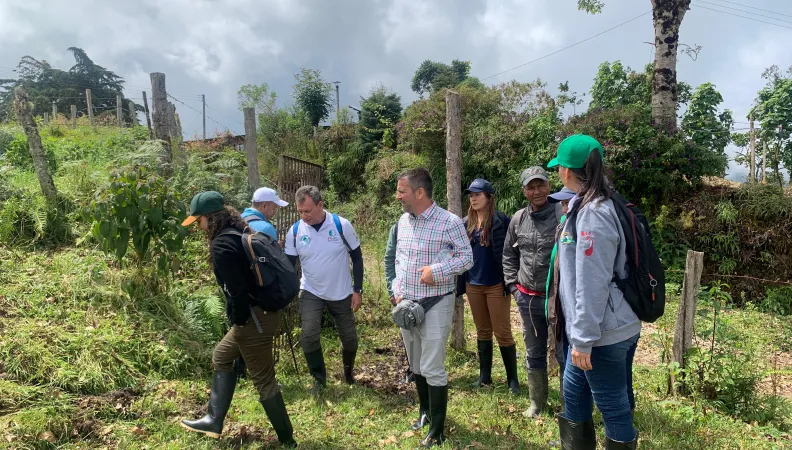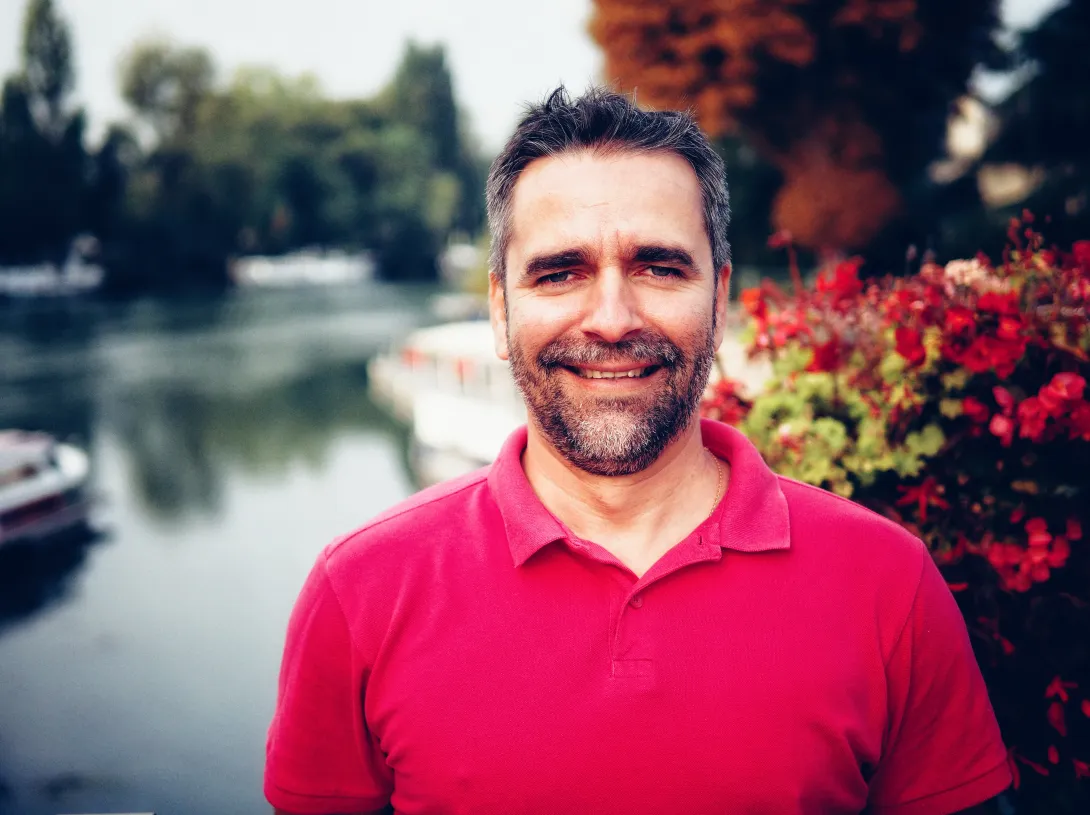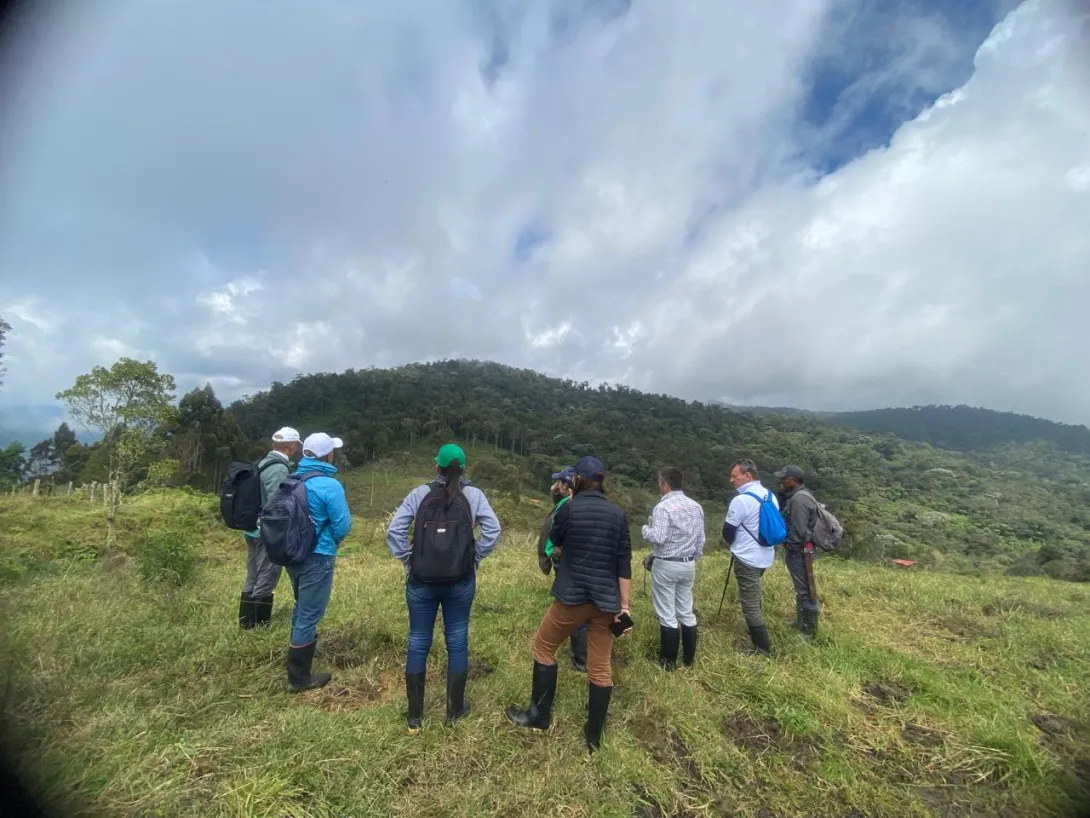Share the page
FFEM Insights: Xavier Debade, expert in ecosystem restoration and sustainable forest management
Published on

To better understand the work of the FFEM, we invite you to meet Xavier Debade, who joined FFEM in July 2023 as a project manager focusing on forest conservation and ecosystem restoration. As the largest reservoir of terrestrial biodiversity, forests play a crucial role in climate regulation.
With his expertise, Xavier helps advance one of FFEM’s key priorities: in line with France’s international commitments, we aim to support zero-deforestation initiatives, the development of land, soil, and forest restoration models, and the production of data on the performance of agroecological, agroforestry, and forestry systems.

Can you tell us a bit about your professional background and the projects or experiences that have shaped your career ?
A nature enthusiast and trained ecologist, my career has always been closely linked to the study and preservation of life.
My past experiences have taken me across different sectors—from conservation NGOs to the energy and mining industries—working with a variety of stakeholders, including project owners, project managers, and consulting firms, always with environmental science as the common thread.
Fieldwork is undeniably the most rewarding aspect of my career. One of the most memorable moments was a four-day trek in the Andean Cordillera of Peru, searching for spectacled bears. What touched me the most during this adventure was meeting the local inhabitants, who welcomed us with open arms despite their modest living conditions.
What motivated you to join FFEM ?
Joining FFEM was a natural step in my career. When I arrived at AFD, I already had FFEM in mind because of its key role in building connections between countries and changemakers worldwide, supporting projects that benefit both the environment and local development.
FFEM offers a unique approach, financing innovative projects with an accepted level of risk. There’s a strong “pilot” dimension, where things don’t always go as planned, but the goal remains to test new approaches. This allows us to explore uncharted territories while also creating a snowball effect to scale up successful initiatives. I had previously worked with this kind of approach through the European LIFE program, focusing on the same topics that I am passionate about.
Now that you’re part of the FFEM team, can you tell us about your new role and responsibilities ? How do you feel about this new adventure ?
My new role involves supporting project leaders working on sustainable forest use and ecosystem restoration in developing countries. These topics are fascinating, as healthy ecosystems are our strongest defense against climate change and are fundamentally essential to our survival on this planet.
As a project manager at the FFEM Secretariat, the operational branch of the Fund, I am involved in every stage of the project cycle, from evaluation and implementation to capitalization. I serve as a bridge between project leaders and FFEM’s governance bodies, including the Steering Committee and the Scientific and Technical Committee.
I am thrilled to be part of FFEM, as its mission is perfectly aligned with the new Kunming-Montreal Global Biodiversity Framework, promoting fairer and more sustainable development models.

What are the main issues and challenges related to the field in which you are involved ?
The challenges related to forests, particularly in the Global South, are numerous and crucial. Forests play a key role in combating climate change as biodiversity reservoirs, ensuring their resilience while providing essential ecosystem services to millions of people whose livelihoods depend on them.
The Amazon rainforest, for example, shapes the climate by generating "aerial rivers" or "flying rivers", created through the evapotranspiration of its forest cover. These airborne moisture flows irrigate the entire region, reaching southern Brazil, Uruguay, Paraguay, and northern Argentina, making them essential for agricultural production and the lives of millions of people in Latin America.
Yet, deforestation and forest degradation continue at an alarming rate, primarily driven by agricultural expansion, which remains the main pressure in tropical areas. Protecting and restoring forests is therefore essential to maintaining climate balance and ensuring a viable future for both human populations and the natural world.
To address these challenges, we must preserve and manage forest ecosystems more effectively, rethink agricultural models while supporting key stakeholders, and reassess our consumption patterns. In this regard, the recent adoption of the European regulation against deforestation and forest degradation, which aims to ban products linked to deforestation or forest degradation from the EU market, is, in my opinion, a significant step forward.
Outside of work, what activities do you enjoy ? What are your personal interests and commitments ? We'd love to learn more about what motivates you beyond your professional life.
Outside of my professional life, my passion for nature continues to guide me. I am deeply interested in permaculture and gardening. Cultivating food in a sustainable way and creating an environment that fosters biodiversity allows me to stay connected to the earth.
As a parent, I strive to instill environmental awareness in my children, teaching them the importance of protecting our planet. I constantly question how I inhabit this earth and how I consume, always seeking more sustainable choices. I strongly believe in sharing experiences and building social connections as essential steps toward creating a desirable and sustainable future together.
Since its creation, FFEM has supported over a hundred innovative projects focused on forest and agricultural land conservation. Thanks to the work carried out today by Xavier Debade, we continue to implement a holistic approach, combining conservation efforts with the promotion of sustainable agricultural and forestry production methods.
Moreover, FFEM places a strong emphasis on recognizing the rights of local communities, prioritizing integrated and participatory approaches to sustainable forest land management while taking into account social values and underlying economic interests.
